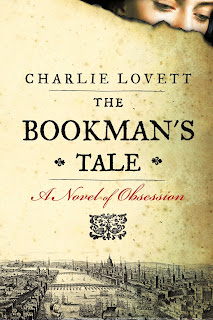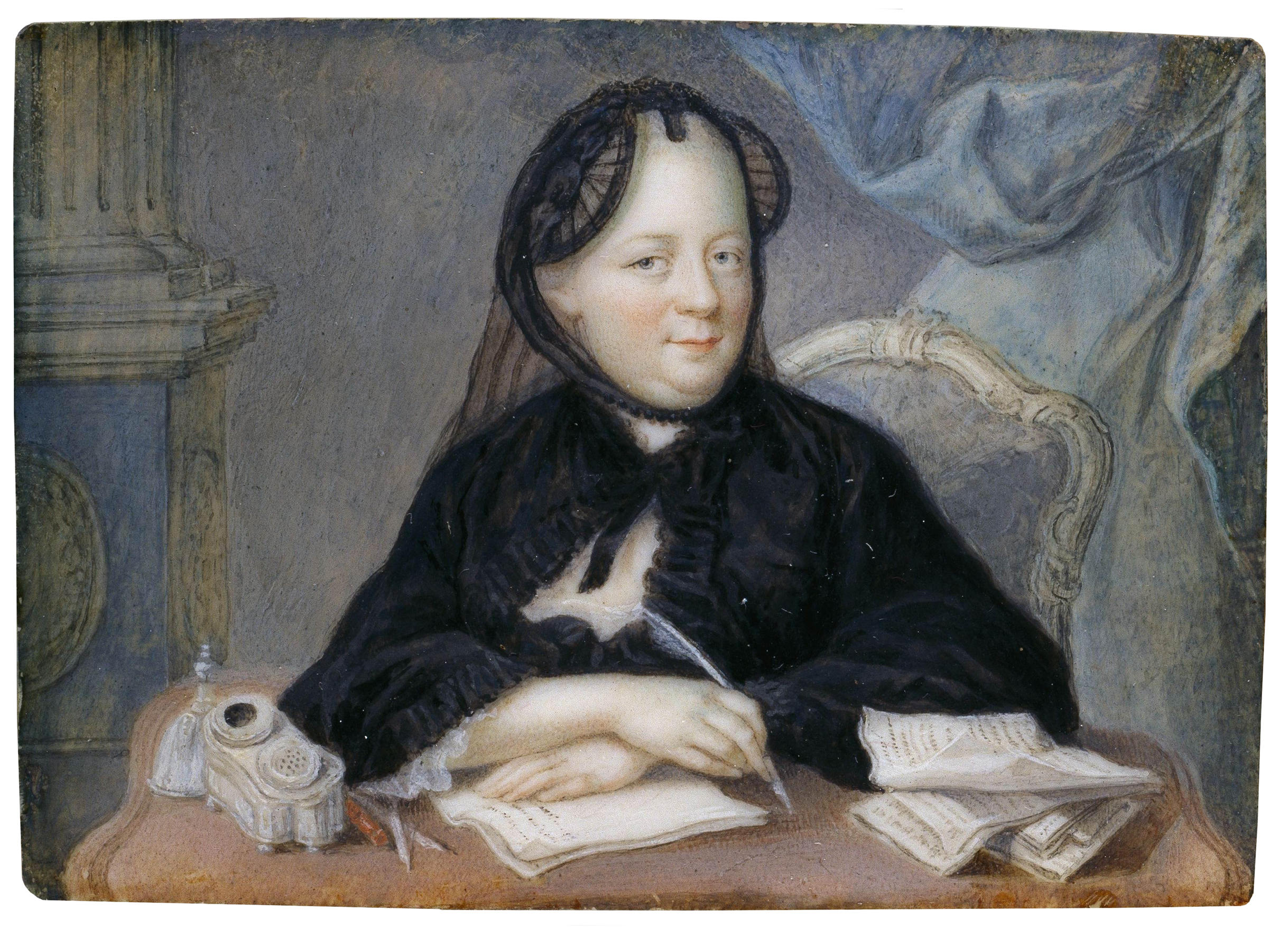Please Welcome Charles Lovett!
ABOUT THE AUTHOR:
Lovett comes to novel-writing
late in his career, having already established himself as an antiquarian
bookseller and children’s playwright. He also lectures extensively on Lewis
Carroll and has amassed a collection of artifacts related to the
author.
Author of
The Bookman’s
Tale
Hay-on-Wye, 1995. Peter Byerly
isn't sure what drew him into this particular bookshop. Nine months
earlier, the death of his beloved wife, Amanda, had left him shattered. The
young antiquarian bookseller relocated from North Carolina to the English
countryside, hoping to rediscover the joy he once took in collecting and
restoring rare books. But upon opening an eighteenth-century study of
Shakespeare forgeries, Peter is shocked when a portrait of Amanda tumbles
out of its pages. Of course, it isn't really her. The watercolor is clearly
Victorian. Yet the resemblance is uncanny, and Peter becomes obsessed
with learning the picture's origins.
As he follows the trail back
first to the Victorian era and then to Shakespeare's time, Peter communes
with Amanda's spirit, learns the truth about his own past, and discovers a
book that might definitively prove Shakespeare was, indeed, the author of
all his plays.
What is it About Shakespeare?
I’ve had the
good fortune to approach Shakespeare as an actor, an audience member, a
playwright, and a novelist and in each case it has been a rewarding experience.
I’ve played the lead (in Measure for
Measure) and my favorite Shakespeare character (Feste in Twelfth Night); I’ve seen Shakespeare productions
around the US and UK; I’ve written four plays for children based on or inspired
by Shakespeare’s works; and William Shakespeare appears as a minor character in
my new novel The Bookman’s Tale (in
which a Shakespearean artifact plays a central role).
So, what attracts me to Shakespeare? First, that his works remain
relevant after all this time. He can still make me laugh uproariously at the
comedies, make me shiver in my seat with plays like Macbeth and Cymbeline,
and make me cry at the universal characters and themes in the tragedies. Henry
V’s speech on St. Crispin’s day makes me want to get up and fight. Bottom in A Midsummer Night’s Dream can have me
falling out of my chair laughing. That Shakespeare can do that after having
been dead for nearly 400 years is remarkable. I think it’s something every
writer aspires to—to have our works live on after we are gone. With Shakespeare
it’s an especially powerful kind of immortality, because we experience these
reactions and emotions not alone in a room reading a book, but as a community,
a group of people responding in real time to his writing as transmitted through
actors, directors, and designers.
Another thing I love about Shakespeare is that, inspite of the
aforementioned setback of his having been dead for nearly 400 years, he is still
the most important collaborator in the supremely collaborative experience of
playmaking. As a playwright I loved the collaboration with director, actors,
designers, and others. One of the greatest moments as a playwright is watching
an actor deliver a line brilliantly and in a way that I never imagined. (If
Shakespeare were still around he’d have this experience a lot). A great Shakespeare production shows that that
collaboration can be just as vibrant when the playwright is no longer alive.
Shakespeare plays do not direct themselves. I have been to a professional
production of Macbeth that was so
dull I walked out at intermission and another that was one of the most riveting
pieces of theatre I have ever seen. It’s not easy, collaborating with the Bard,
but it can be tremendously rewarding when you put in the time and the hard work
and get it right.
As a novelist, I was rewarded by an aspect of Shakespeare that is an
annoyance to many scholars—the simple fact that we don’t know much about him.
In The Bookman’s Tale, my modern
protagonist, Peter Byerly finds what may be a priceless Shakespearean
artifact—a book that was a source for one of his plays and seems to have the
Bard’s marginal notes on every page. Of course it may be a clever forgery, and
it certainly puts Peter in danger as he tries to solve its mystery. In addition
to telling Peter’s story, I also tell the story of this book, beginning in 1592
in a tavern in London. In this section of the novel, I was able to use many
real people, including Shakespeare, as characters, and here’s where knowing so
little about Shakespeare’s life came in handy. The fact is, we have no idea
what sort of person William Shakespeare was—what it would be like to meet him.
Was he friendly, arrogant, introverted, funny? We just don’t know. So, when
Shakespeare himself entered onto the stage of my novel, I could make him
anything I wanted without contradicting the historical record. (I should add,
that I had done this before in my play Becoming
Shakespeare, in which the teenage Will Shakespeare learns about human nature
by watching the crazy characters at a local inn while he and his friends are
doing summer theatre. In case you were wondering, my Will Shakespeare is a
pretty obnoxious teenager—but then so were a lot of us).
And this is really the crux of what I love about Shakespeare—that his
works are the most studied and familiar in the English-speaking world, cultural
touchstones that we can still relate to and understand; yet the man is almost
unknown, a mystery so profound that reasonable people believe he didn’t even
write the plays published under his name. It’s a wonderful paradox, especially
if you are a playwright or novelist willing to spend some time plumbing its
depths.
GIVEAWAY TIME!!!
To Enter to Win a Copy of this book:
1- You must be a Follower of this
blog
2- For Additional Chances,
post on FB, Twitter, Linkedin, Blog and elsewhere! Just come back and post your
link in comments.
Good Luck!!!
































.jpg)











8 comments:
I follow you on GFC. Please count me in. Thank you for sharing.
mystica123athotmaildotcom
I follow your blog through Bloglovin, and I would love to win this novel. It's been on my wish list since I first heard about it. Thanks for the giveaway.
lcbrower40(at)gmail(dot)com
I have had my eye on this book for some time! It just sounds so good! Thanks for the chance to win a copy.
I am a GFC follower (Colleen Turner) and email subscriber
(candc320@gmail.com).
+1. I tweeted: https://twitter.com/candc320/status/365825155592749057.
Been wanting to read this book email follower lomazowr@gmail.com Twitter follower will tweet @rhondareads.
Been wanting to read this book email follower lomazowr@gmail.com Twitter follower will tweet @rhondareads.
I tweeted @rhondareads
Would love to read this book.Fox follower Twitter follower@rhondareads tweeted
I follow on GFC (Lara frame) and follow on email lafra86@gmail.com
Post a Comment